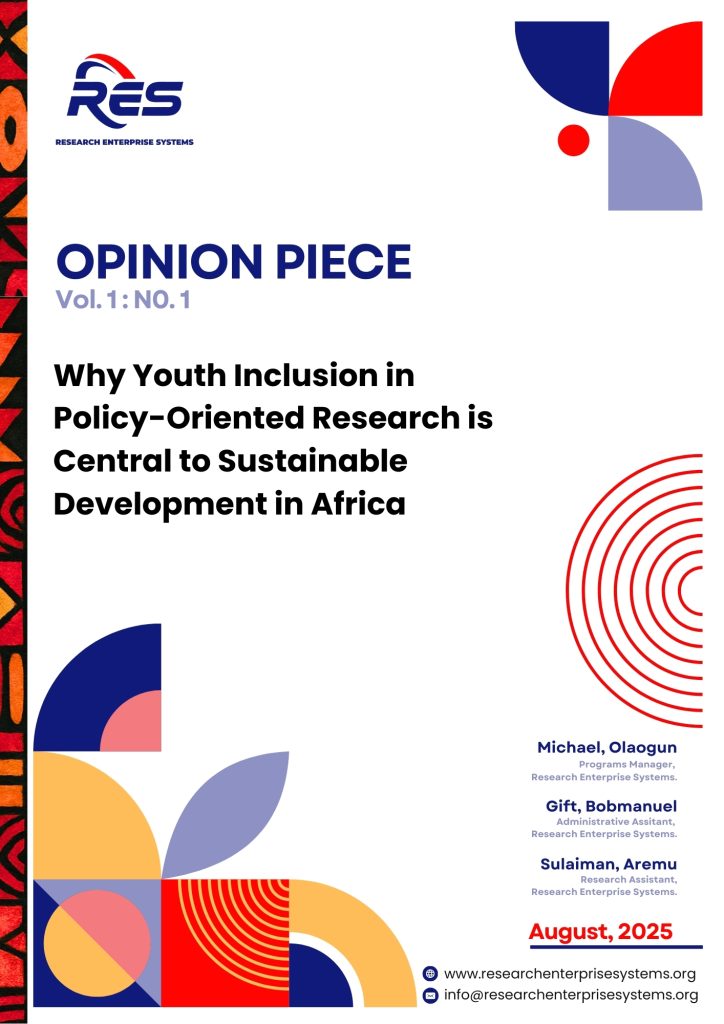Over the past decades, global frameworks have increasingly recognized youth as vital partners in shaping development trajectories. As part of the efforts aimed at mainstreaming the youth in global development agenda, the United Nations adopted the World Programme of Action for Youth (WPAY) in 1995, explicitly prioritizing the “full and effective participation of youth in the life of society and in decision making.” About two decades later, the Youth 2030 Agenda further reinforced youth commitment and engagement across peace building, human rights, sustainable development, and humanitarian efforts. Regionally, the African Youth Charter (2006), an African Union treaty, affirmed that development hinges on youth’s “active and enlightened participation,” and tasked member states with promoting equal partnerships in governance, research, and policy. Despite these declarations, translating these ideals to concrete set of actions continues to suffer a crucial missing link, which is how evidence is generated through policy-oriented research—defined as systematic inquiry that informs, shapes or evaluates public policy is perceived to be inadequate globally and especially so in Africa.
Africa’s demographic landscape is distinct: a continent of youthful energy, innovation, and aspirations. With over 60% of its population under the age of 25, the continent holds enormous potential to drive transformative development. Yet, paradoxically, this demographic dividend is largely absent from the processes that define and shape the continent’s policies especially in the area of policy-oriented research. This deficiency is particularly stark in Nigeria, where more than 60 million young people (ages 15–35) represent approximately one-third of the country’s population. Official documents, including the 2019–2023 National Youth Policy, classify youth as “creative forces” whose active participation in governance and research is invaluable. Nigeria has also ratified the African Youth Charter and endorsed global frameworks like WPAY and the Beijing Platform for Action, yet these commitments have not translated to systemic and structural changes that will guarantee increased opportunities for youth inclusion at the highest level of decision making. Policy-oriented research, the body of knowledge generated to inform government decisions and public policy is vital for addressing complex socio-economic issues, ranging from unemployment, insecurity to climate change. However, the role of young people in shaping the knowledge ecosystem should not be neglected. Youth are often recipients or subjects of policy, not co-creators of the knowledge that influences it. This perceived exclusion represents a missed opportunity. The participation of youth in policy-oriented research should not only be seen as a matter of inclusion, it is also a matter of necessity. As such, they are critical to achieving the theme of 2025 International Youth Day “Local Youth Actions for the SDGs and Beyond.” Ignoring young voices in the research space, we risk perpetuating policies that are disconnected from the lived realities of a majority of Africa’s population.





The article is a well-structured and persuasive opinion piece that clearly situates youth inclusion in policy-oriented research within global, regional, and national development frameworks. It successfully blends advocacy with practical recommendations, offering a compelling argument for shifting from symbolic youth engagement to substantive participation. The authors present both the problem (youth exclusion from decision-making in research) and the solution (structural reforms, mentorship, and policy frameworks) in a coherent way.